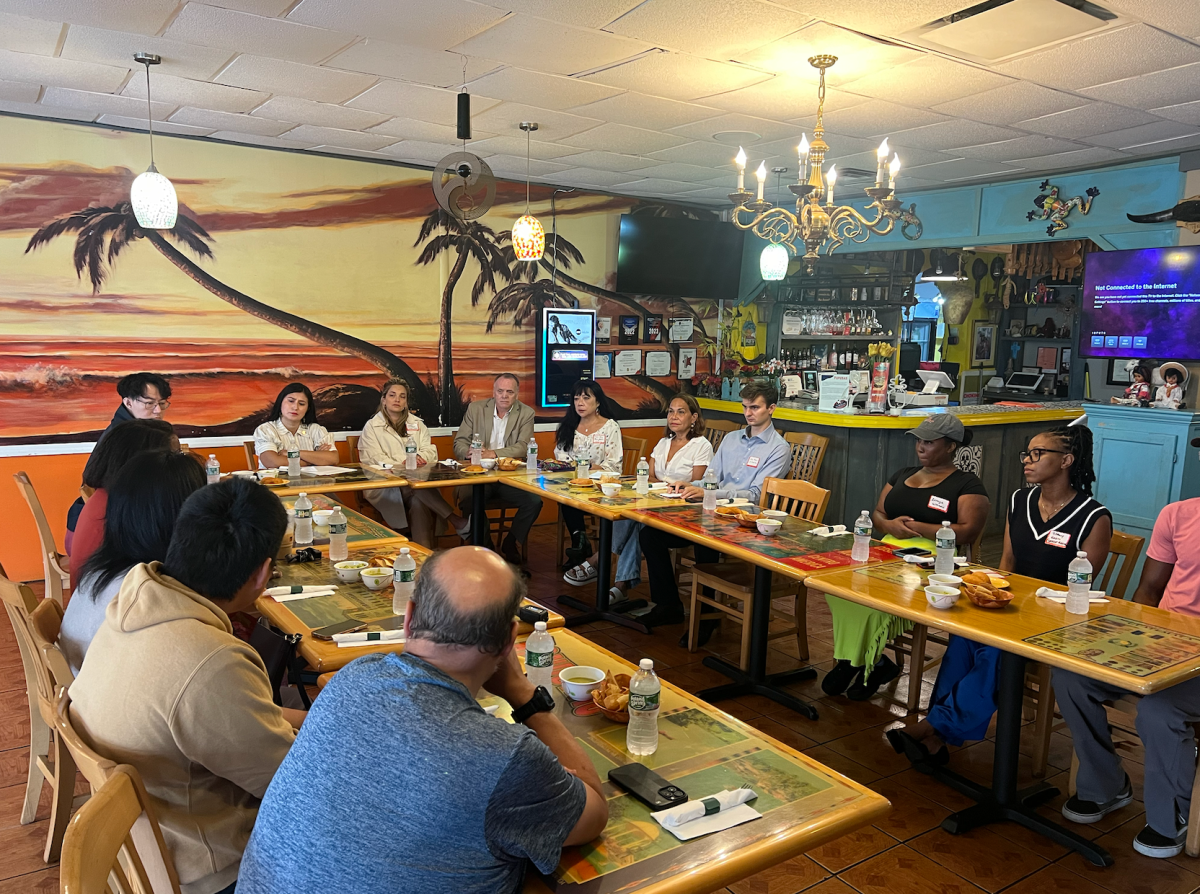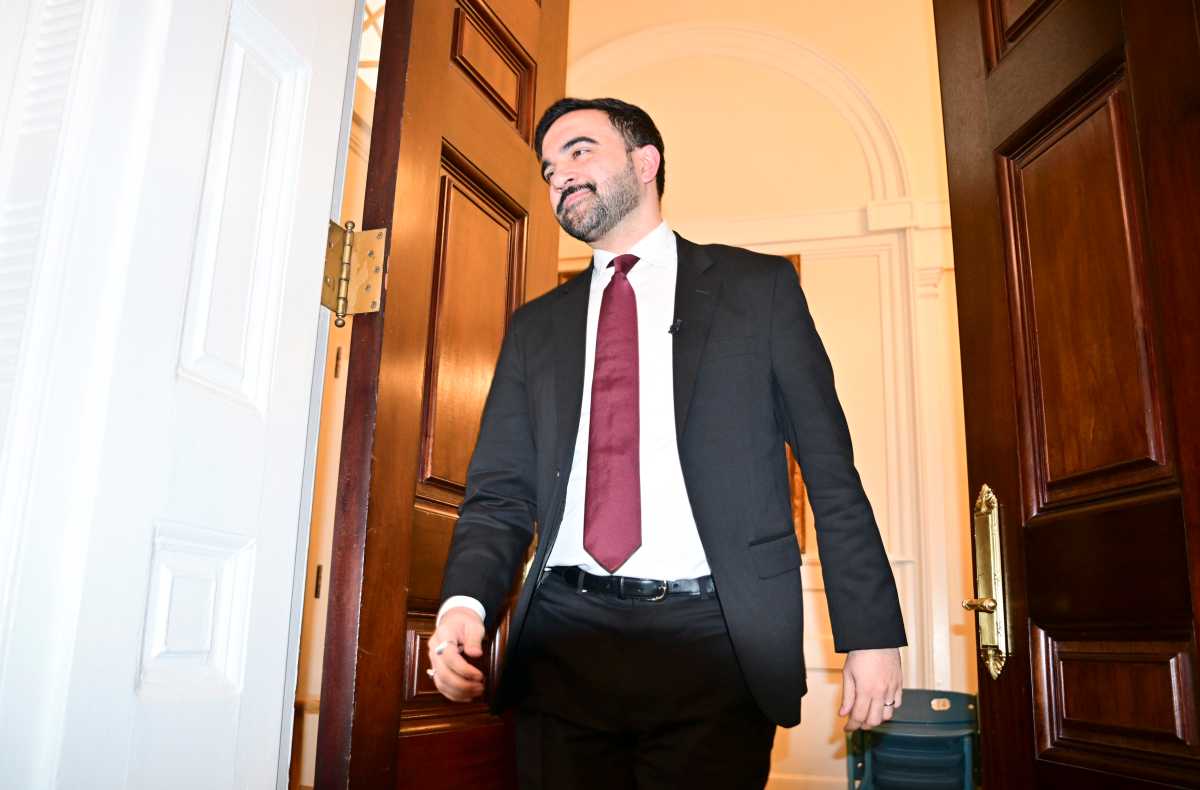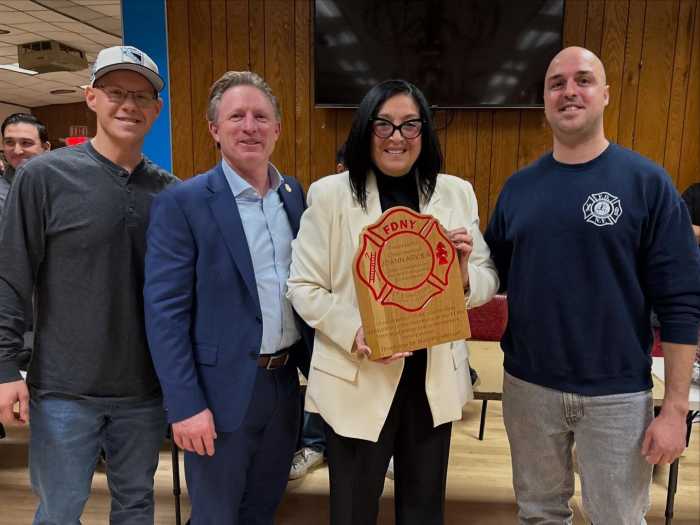Last week the Queens Chamber of Commerce brought together app-based delivery drivers and local restaurant owners for a roundtable discussion on what they say are negative consequences of the city’s new minimum pay rate for delivery workers.
The Aug. 8 event, held at Rincon Salvadoreño, a family-owned restaurant in Jamaica, was organized in partnership with DoorDash. The food delivery service is one of several food delivery giants that has opposed the minimum pay increase, and instituted new fees for customers in order to offset higher wages now mandatory in NYC.
According to the Department of Consumer and Worker Protection, wages for over 60,000 delivery drivers in the city have gone up significantly since the first installment of the minimum pay rate in December 2023, bringing pay up to $17.96 per hour.
Before the increase, drivers reported making the majority of their pay through tips, as their base pay, $5.39, was just a quarter of the city’s minimum wage. In April 2024, the minimum wage was increased again to $19.56, and it will be adjusted for inflation each year.
But food workers who attended the roundtable discussion shared that they are frustrated with reduced hours and tips as a result of subsequent changes from how the apps operate, as well as consumer behavior.
One Dasher named Joseph shared that his work hours have decreased. While he is on the clock for 40 hours each week, he will only receive 32 hours of orders to fulfill, spending more time waiting. The shift has forced him to head to Long Island in hopes of more orders.
He views the minimum pay change as a move away from the gig economy to make food delivery a more “formal work economy.” But he does not believe that the industry needs to be “super regulated” to work in favor of the drivers.
In response to the new law, DoorDash changed the ordering process and removed the option to tip before placing the order. While customers can still include gratuity after their order is placed, some users say that option is more difficult to navigate and amounts to jumping through hoops.
Some customers may also feel less inclined to tip now, knowing that workers are receiving significantly higher compensation than before.
“The decrease in tipping is primarily the result of changes some apps have made to their interfaces to make it more difficult for consumers to tip,” read a press release from the DCWP last month.
The agency’s first quarterly report since the final pay increase went into effect also revealed that the number of deliveries increased by 8%, but customers’ costs only increased by 2%, despite apps raising fees.
“We’d like to thank all of the participants in today’s discussion who shared how the policy has impacted their livelihood, whether that is through a decline in orders as a small business or a decrease in earnings as a Dasher, and we hope local policymakers will hear out these concerns,” said Thomas J. Grech, President and Chief Executive Officer at the Queens Chamber of Commerce, which represents 1,400 organizations.
“New York City’s restaurant industry has been hit hard by the impacts of the City’s minimum pay rate for delivery workers,” said Elena Barcenes, the owner of Rincon Salvadoreño, where the discussion was held.
But the city says that impacts on the restaurant industry have been “minimal,” given the measured increase in orders from April to June. However, the report also found that the average amount tipped decreased by $2.64.
“I think there are a lot of issues that still need to be addressed in regards to food delivery in the gig industry,” added Joseph.


































